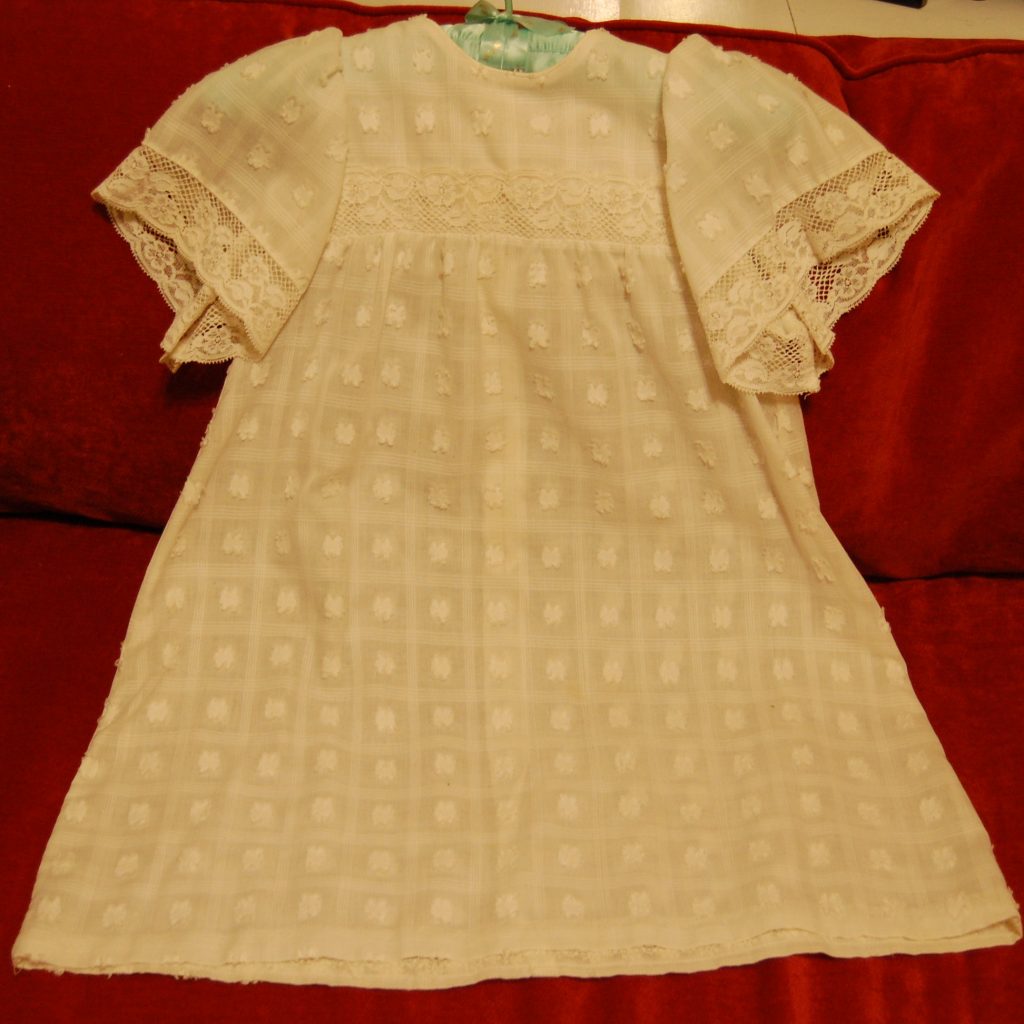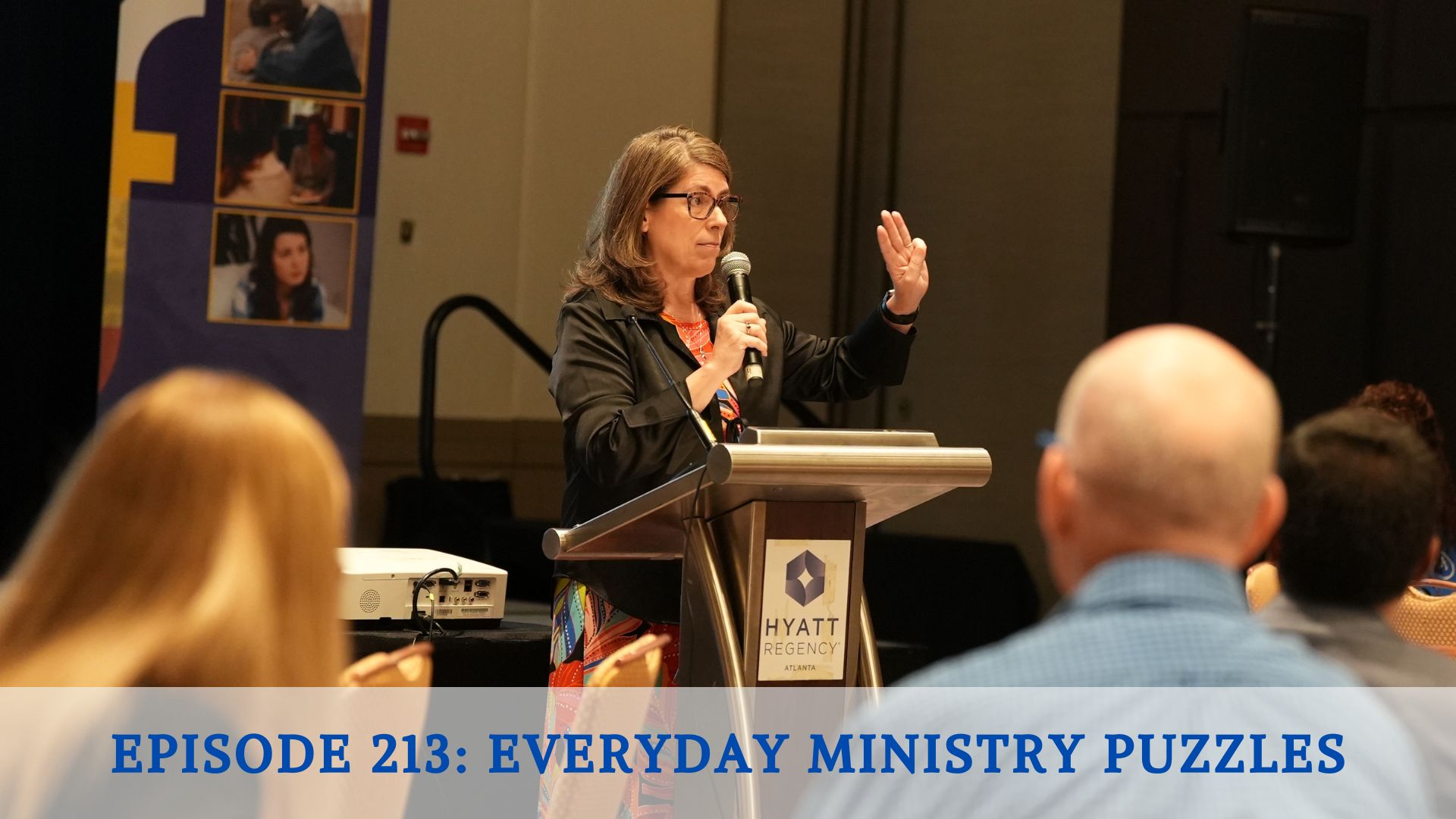For women in ministry and lgbtiqa+ ministers*, everyday ministry puzzles are an unavoidable part of living into one’s calling and work. When I listen to the ministers I study, seminary students, friends, and colleagues in ministry, I hear stories about the following unavoidable and puzzling challenges. Which ones resonate for you?
- Microaggressions that undermine confidence and erode trusting relationships.
- Sexual harassment and inappropriate and unwelcomed sexualized talk, touch, and expectations.
- Deep seated fear and dread of female power.
- Open anxiety about sexuality and narrow definitions of what constitutes the positive human experience and expression of sexual identity.
- Denominations that are ambivalent and/or openly opposed to their very existence.
- Seminary and college curriculum that sidesteps and ignores basic everyday concerns related to identity and how it impacts their practice of ministry.
- Gender inequities in pay, benefits, and opportunities to excel or advance in their work.
- Language that continues to speak of an all-powerful and dominating white male God, mis-shaping the spiritual imaginations of children and people of all ages.
- Institutionalized forms of sexism, homophobia, racism, that present brick walls and keep people in small boxes that prevent growth and flourishing.
Just making that list is overwhelming. But living it? Well, it is no wonder that women and lgbtiqa+ ministers and pastors are exhausted.
How do we make any difference in addressing these stubborn problems?
I’ve been thinking about this question for decades. The puzzles have been challenging me since I was in college. In my current book-in-progress, Baptized and Ordained, I address this and related question in a variety of ways. Today I want to share with you three things that are critical to make headway in working through these perennial puzzles.
First, we need to see the problems in their complexity and grasp why they are so culturally driven and hard to change. Second, we need to continue deconstructing and reconstructing better theologies. Third, we need visions of what is working and more particular stories of how we can achieve meaningful change. When we have each of these in mind, the complex puzzles, re-framed theologies, and embodied practices that bring change, then we can shift our own everyday imagination and practice, challenge our institutions collectively, and engage in making a more just and loving world. The seeds of the gifts we need for the work are in God’s loving invitation, embodied in our baptisms, callings, and ordinations.

Seeing and understanding the puzzles
Before there are solutions and prior to envisioning change, we need a better shared understanding of the problems women and lgbtiqa+ ministers are facing. To begin, are we just talking about problems for ministers? No. They are problems for the wider church and for the practice of ministry broadly understood. They are problems of the world which cause many people to struggle. And they are problems to which pastoral ministers and theological educators are (or could be) speaking and writing.
Exactly what kind of puzzles are we talking about? They are not puzzles like Wordle or the Sunday crossword which have difficult, but attainable, solutions. They are marked by what practical theologians recently called “conundrums” and what philosophers of knowledge and social planners call “wicked problems.” These are problems and puzzles that are intractable. These puzzles are durable and keep finding new forms. No artificial intelligence is equipped to solve them. They resist solving so completely, that even attempted solutions often have the kernels of new problems buried within them.
Finally (for now), what are some examples of these everyday ministry puzzles? I will share just three to give you an idea of the kinds of puzzles I’m working on in Baptized & Ordained.
- How do language and habits work together to render power invisible in churches?
- How does the cultural status quo allow and encourage white men (and people in power) to admire but never actually follow women, people of color, lgbtiqa+ folx (and people on the margins of power)?
- What range of conditions make failure optimal rather than debilitating for women and lgbtiqa+ people as they learn the practice of ministry?
Deconstructing and reconstructing theology
Theology alone cannot address all these concerns, yet we need better theology. We need to deconstruct bad theologies and reframe them. We need better creative and thoughtful interpretations of theological meaning if we want to see movement toward resolution on these challenges.
Does theology actually matter in these struggles? How do we know? For five decades, women leading churches and teaching in colleges and seminaries have helped the church expand and rethink its theology to do less harm and be more inclusive. Their writing and teaching helps to open churches to more expansive leadership. Likewise, lgbtiqa+ leaders and teachers help us think deeply about how theology supports binaries and how their lived experiences of non-binary identity, same-gender love, transitioning to wholeness, and more, contribute to everyone’s flourishing. When we look to women and lgbtiqa+ leaders to help us liberate our theology, we find more pathways to God’s love, human growth, and ministries that embrace and serve more of humanity.
Envisioning, embodying and enacting change
Simply seeing the puzzles that keep frustrating the work of women and lgbtiqa+ ministry will not solve them. Deconstructing and reconstructing our theology is crucial, but not enough by itself to change the practice of ministry or the churches and other institutions where ministry often happens. To envision new pathways toward change we also need future stories, embodied action, and renewed rituals in communities where we hope change will take root. Let me offer one example from my life about how long and how many forms change can take.
A spirituality of changing ministry by changing language
In college I came to see the rudimentary shape of one large puzzle that captures the problem of how language and habits of language (reading, singing, praying, writing) keeps male power in place and makes no space for women’s voices or leadership or presence. If there was going to be change, then we needed the most basic and enduring shift to language. So I began at age 19 to change the words of every hymn that I sang. I would stand in chapel or in my home church or wherever I visited, and I would bellow out, “wherever Christ leads I’ll go” instead of “Wherever HE leads I’ll go.”
I changed scripture and litanies. And I marked up all my textbooks and everything I read when humanity was subsumed under he or him or his or man. When I changed the words, I would also accompany them with margin notes in which I yelled and cussed out my frustration in ALL CAPS. Sometimes I just went straight up for feminine language and sometimes I’d go for something more neutral. After all, we had thousands of years and billions of words that unreflectively handed over all power and priority to men and men’s experience. Even portraying God as male. Surely, we could go another thousand years prioritizing women’s experience?
Evolving practice
Over time, my spiritual practice of changing language also shifted away from the militarized, powerful, and bloody language of Christian theology. I moved away from the more subtle homophobia and gender binaries that do harm. I began leaving behind racist and colonized language as it became clearer and clearer to me.
When parishioners saw me standing at the front of the church, ordained, robed, and appearing to sing from the hymn book, they would notice something different and ask me, “What are you singing?” I took the opportunity to explain my spiritual practice of changing language. I educated them about the importance of reflecting everyone’s experience and seeing God as more than an old white man on a golden throne in the sky.
Every week for 5 ½ years, with full support from my colleagues, I revised the language of worship. We changed readings, songs, Scriptures, and every place words mattered for worship. In my seminary classes over the last 14 years, I continue to introduce, explain, and educate about the use of language. And how to expand gender, de-colonize language habits. Now I utilize more subtlety and nuance because time has brought wisdom about how to make change more effectively and more graciously. Yet with more than 30 years of practice, I’m still astonished that everywhere I go, even in the most liberal and progressive gatherings of Christianity, I still find the most horrific language, not just gendered as masculine but unreflective in so many troubling ways. The puzzle of language, gender and power keeps morphing into new forms. Yet hope and liberation also keep morphing through a new vision of language.
Looking for Lasting Change
To the positive side of the change ledger, is years of enacting, educating and advocating for new language that embodies a new theology (so much more still to say there). I’ve been able to say yes to girls who asked me to baptize them. I’ve seen many girls and lgbtiqa+ children and young people find their way into belonging in the church. And I’ve accompanied others in their calling to lead and serve the church. Those callings feel less like novelties and more like a new vision for church and leadership.
These and other everyday ministry puzzles may be intractable and unsolvable, but they also create a occasion, a calling even, for me to cultivate years of embodied spiritual practice. The puzzles called me into a purpose that participates in renewing the world, a vision of reframing a more humane theology, a relational way of living. These are the gifts of my baptism and calling.

And these are the kind of stories I want to tell you. The kind of stories I want to learn from you. Join me in a year-long journey of exploring the puzzles, reframing theology(s), and learning more together.
If you are pondering these everyday ministry puzzles, then I hope you will consider joining me in the year-long Baptized & Ordained learning community. Especially if you are called to ministry, you may be seeking a place of connection and support. In the course, which meets monthly, we are making space for you to learn, share your stories, and connect with others on the journey of embracing God’s calling in your life. Choose your membership level, and register before October 1. Learn more today!
*lgbtiqa+ stands in for lesbian, gay, bisexual, transgender, intersex, queer (or questioning), asexual, and more.




